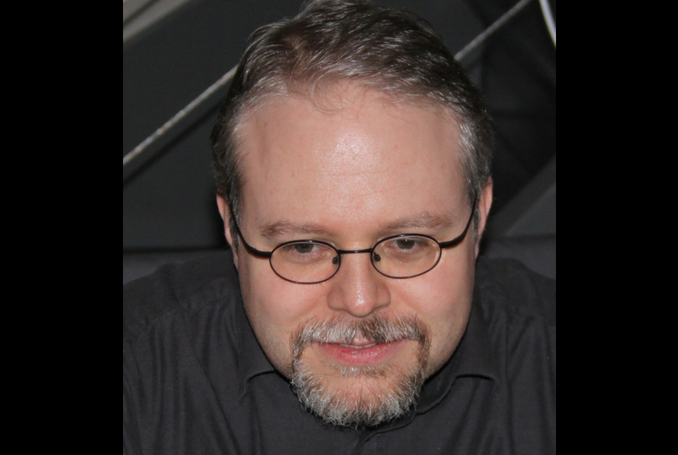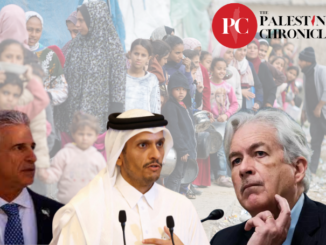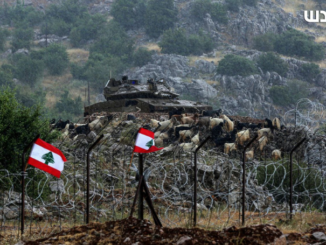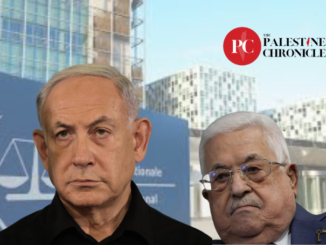
Anglo-German composer Wieland Hoban was banned from this year’s Donaueschingen music festival.
Hoban’s ‘Hora’ot Pticha Be’esh (Rules of Engagement I)‘ is an instrumental piece featuring sampled declarations from an Israeli sergeant who took part in Operation Cast Lean in Gaza between 2008 and 2009. Speaking in Hebrew, the sergeant can be heard saying “the rules of engagement were to shoot,” looped throughout the composition.
Composer Wieland Hoban may be risking his career, because the German state and its apparatchiks don’t take kindly to their unconditional support for Israel being questioned https://t.co/nThDzRrm0b
— Electronic Intifada (@intifada) August 18, 2018
He then composed ‘Al Shifa (Rules of Engagement II)’, named after a hospital in Gaza, which has been the center of Israeli criticism, accused of being used by Hamas for military operations.
But when Hoban moved to premiere the next part of his trilogy, the artistic director of the Donaueschingen music festival, Björn Gottstein, denied his request in a private email dated July 16.
Isreal German Music Festival Censors Composer for Israel Criticism: Wieland Hoban's latest musical piece on the 2008-9 Israeli offensive in Gaza has been banned from the Donaueschingen music festival. Germany has a peculiar relationship with Israel. Its… https://t.co/XuNHRmSp6S pic.twitter.com/4ErBAAcvM9
— George McGMaryland (@McGMaryland) August 19, 2018
Gottstein said he rejected Hoban’s piece because “he was already represented in the 2016 edition” and the artistic director prefers to give a chance to other composers, but that was only part of the reason.
The original email has not been published, by request of Gottstein himself, but Hoban paraphrased in an open letter that has received widespread support from artists and intellectuals.
Composer Wieland Hoban proposed to write a piece in response to the 2014 'Cast Lead' bombing of Gaza. The director of the Donaueschingen festival told him he would never commission music that was critical of Israel. Now the director defends his commissioning policy. #censorship https://t.co/C5HOzCL85M
— Artists4PalestineUK (@Art4PalestineUK) August 16, 2018
Hobart writes:
“He told me in the clearest possible terms that although he gave composers a free hand in their use of political content, he would not tolerate any criticism of Israel at the festival and would prevent the appearance of any piece on the programme that contained such criticism.”
The letter has earned widespread support from around the world, forcing Gottstein to publish another statement on August 16, further explaining his reasons.
Gottstein said:
“Due to its history, Germany has a special responsibility to Israel. Due to this history, overt anti-Semitism is seen as abhorrent throughout most of society. For this reason, anti-Semitism is often communicated through criticism of Israel. Israel-related anti-Semitism is currently the most common form of anti-Semitism – even in Germany.”
Margaret Hodge has compared Labour to Nazi Germany as part of her hate campaign against Jeremy Corbyn
But she – and the Israel Lobby – are quick to scream antisemitism whenever a Labour member compares Israel’s human rights abuses to those of Nazi Germany
Breathtaking hypocrisy pic.twitter.com/bAYPsggAyt
— Socialist Voice #JC9 (@SocialistVoice) August 16, 2018
Gottstein said it would be “a fatal mistake” for Donaueschingen to present such a piece, and blamed Hoban for his support of the cultural boycott of Israel and for denouncing Israel’s apartheid policies.
Gottstein added:
“These positions are unacceptable for me and Sudwestrundfunk [the public radio broadcaster that presents the festival]. I do not want to contribute to anti-Semitism in Germany in any way.”
Hoban said he regretted that Gottstein, as an employee of a public broadcaster, was censoring public debate:
“Gottstein’s words constitute an absolute ban that applies to any and all composers who might be interested in addressing this subject. We believe that art must be a forum for the free exchange of ideas and reject every form of censorship.”
“although [Gottstein] gave composers a free hand in their use of political content, he would not tolerate any criticism of Israel at the festival and would prevent the appearance of any piece on the program that contained such criticism.” #BDS https://t.co/zRs65SSItI
— Paul Griffiths ?? (@Griffiths_Art) August 19, 2018
As well as many of Hoban’s colleagues, the open letter is also signed by Noam Chomsky, Norman Finkelstein, Iris Hefets, Ilan Pappe, Sara Roy, Avi Shlaim, Slavoj Žižek and Roger Waters.
In July, the renowned pianist and composer Daniel Barenboim published an opinion piece in The Guardian regarding Israel’s racist law that confirms that only Jewish people have the right to self-determination in the Zionist state.
UNLIKE the German Minister, other, more cultured people, like Daniel Barenboim, agree with #BDS , that #Israel is an apartheid state. In english:https://t.co/ddvLZlvnNX pic.twitter.com/vvhJw0Zj87
— Paul Dva (@zoolooy) August 16, 2018
Barenboim wrote:
“I don’t think the Jewish people lived for 20 centuries, mostly through persecution and enduring endless cruelties, in order to become the oppressors, inflicting cruelty on others. This new law does exactly that. Therefore, I am ashamed of being an Israeli today.”
(TeleSur, PC, Social Media)







